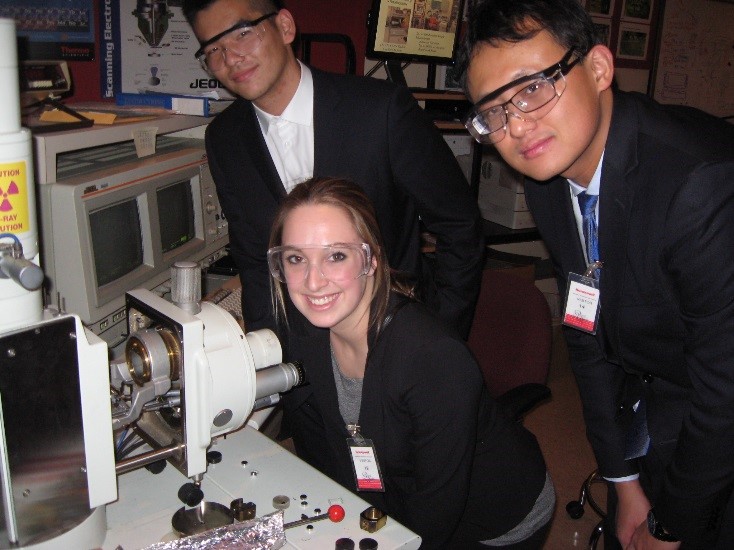Tiffany Franklin, Associate Director

As the leaves start to turn, the days get crisp, and pumpkin products are ubiquitous, that means fall is in the air and so is interview season. For Career Services, this entails a lot of mock interviews to help students prepare and it’s one of my favorite parts of my job as a career advisor. I’m always struck by how amazing Penn students are and the incredible things they are doing. I’ve also noticed a tendency for students to minimize their achievements, almost as if imposter syndrome has swept through campus like a cold or virus. While I’m not advocating for anyone to be arrogant and walk around campus randomly rattling off their resume, there is a proper time and way to discuss your accomplishments. Your resume, cover letter, LinkedIn profiles, and interview are the perfect place to articulate what you have achieved so far and where you aspire to go next. In order to shine in these job/internship interviews, you must believe in yourself.
Why is confidence necessary for interview success?
To understand why confidence is a key component of success, let’s reflect on the purpose of the interview. Employers already think that you can do the job and that’s why they are inviting you to an interview; otherwise, they would not waste their time. Resumes lead to interviews and interviews lead to job offers, so by the time you land the interview, you have already crossed some substantial hurdles to get to this point. The interview is the time for you to show the employer why their first instinct about you was right. During my recruiting days, I wanted to confirm that the candidate had both the skills and the motivation to do the job. Basically, I needed the candidate to inspire confidence that they would be able to hit the ground running, make positive contributions to the team, and collaborate well with their colleagues.
How does a lack of confidence manifest itself in an interview?
When discussing upcoming interviews, some students say, “Why did this employer pick me? It must be some mistake?” Statements like this may lead the student to not prepare as thoroughly as they should because they are giving themselves as out and letting fear win. I didn’t think I would get it anyway, so why try? Then it becomes a self-fulfilling prophecy. For others, it may not be as blatant. When answering interview questions, his/her voice may go up at the end of the story signaling a question rather than a statement. Or, the person may have answers that fade out at the end. Over the years, I’ve had students in mock interviews rattle off a list of reasons why they aren’t qualified for the job so they can get that out of the way and tell me why I should hire them. The reason this strategy backfires is that it leaves the hiring manager with a negative impression from the beginning that’s hard to overcome. On the nonverbal front, fidgeting, a lack of eye contact, a weak handshake, and using filler words (um, like, you know) can also signal a lack of confidence.
Let’s Pretend You are the Recruiter
Imagine a scenario where you are the founder of a club and need to recruit a handful of new members to help you build the group into something that will live on after you graduate. When speaking to potential candidates, would you want to work with the student who can barely look you in the eye and cannot provide examples of past experiences that relate to the position you are filling?
How to get confidence for your interviews
Now that we’ve talked about why you need confidence, let focus on ways to build it in yourself.
1) Take the time to prepare for your interviews.
a. This means thinking about your answers and practicing them aloud repeatedly. No, you are not memorizing answers. Instead, you are smoothing out the delivery. This will go a long way in building your confidence.
b. For tips of answering interview questions, see an older post about an Essential Interview Skill.
c. Check out all the interview prep resources on the Career Services website.
d. Schedule a mock interview with a Career Services adviser.
2) Stop comparing yourself to others.
When surrounded by overachievers, it can be a bit overwhelming and easy to feel like you are falling behind. Don’t forget all the incredible things you did to get admitted to Penn. You are one of those overachievers! No matter how together people look, everyone has their struggles and some are better at hiding in than others. Check out PennFaces, a wonderful site with stories of the ups and downs other students have navigated. You are not alone! Take some of the pressure off by focusing on your own achievements and not those of others.
3) Make a List of your 3-5 greatest achievements
When preparing for an interview or any challenge that seems intimidating, it’s helpful to think of your past wins. Do this not only to prepare answers for your interview questions, but also as a way to visualize yourself being successful. Think about the process that got you there. It’s wonderful to focus on the pride you felt high school graduation day or when you met a goal that had eluded you for a while, but also think of the process of how you got there. Remember the ups and the downs and how you demonstrated an ability to persevere. Resilience is a quality that employers value!
Building confidence for your interview may feel awkward at first and take some practice, but you can do this. If you feel you need extra help in boosting your self-esteem, you have resources on campus that will support you such as the CAPS office, which offers group workshops and individual appointments. Career Services is here to support you through every aspect of your job search whether you are just beginning to explore options or you have an idea and need career advice during the job/internship search process.





